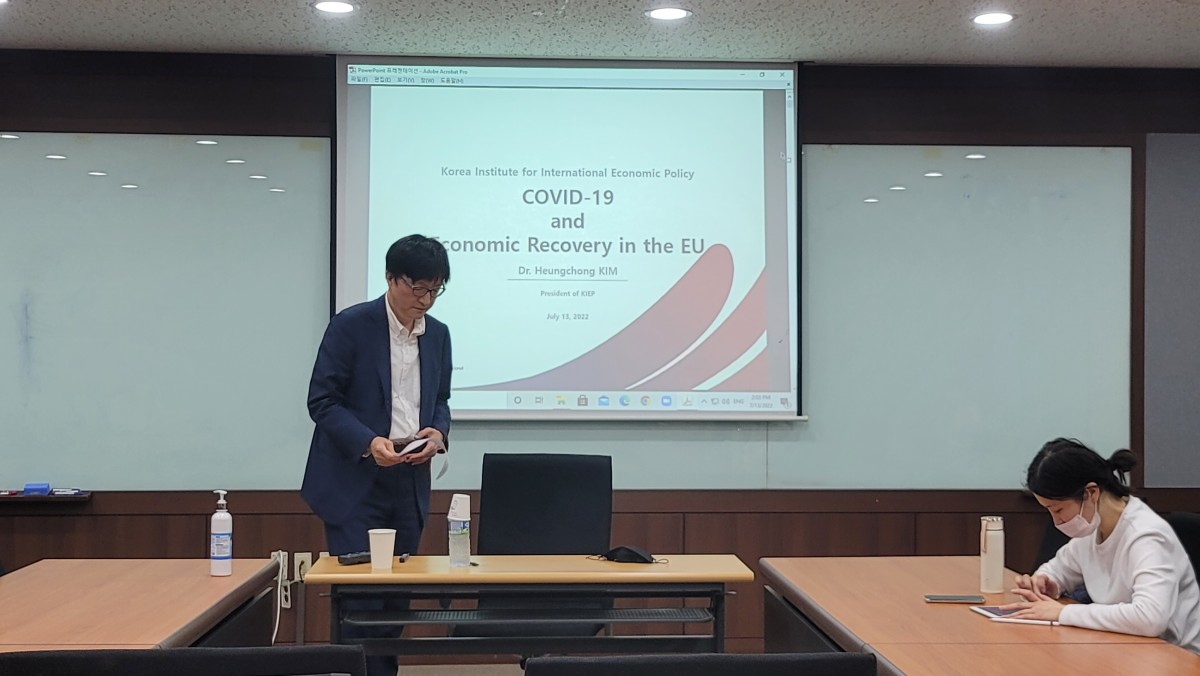Summer School 2022 <European Economics> Session 13
페이지 정보

본문
On July 13th, Dr. Heugnchong Kim from KIEP gave a lecture on Economic Recovery in the EU and COVID-19. The pandemic erupted in 2020, lasting over two years, taking economic toll on the global economy. The effect of COVID is asymmetrical between countries and within a country. COVID had revealed several weak points of globalization. First of all, the pandemic exposed the capacity of the state’s medical system. Vaccine distribution across the countries were the problem, referred as vaccine nationalism. Furthermore, there was a lack of communication and transparency. The conspiracy theories regarding the disease were prevalent. Currently, vaccine nationalism is becoming a problem, igniting the nationalism and used as a leverage between the countries.
The economic impact of COVID is massive. In both short term and long term, serious economic recessions have occurred. Governments are providing job support, income/revenue subsidies, and provide financial and tax support as short-term measures. Meanwhile, the green deal and digital transformation cannot be overlooked. Additionally, economic dependency on China is considered as a potential threat, including in security for the EU. The European nations are now trying to reshore the production lines and minimize the effects of global supply chain.
첨부파일
-
Session 13_COVID19.pdf (2.6M)
33회 다운로드 | DATE : 2022-07-19 11:40:23
- 이전글Summer School 2022 <European Economics> Session 14 22.07.19
- 다음글Summer School 2022 <European Economics> Session 12 22.07.19
댓글목록
등록된 댓글이 없습니다.











